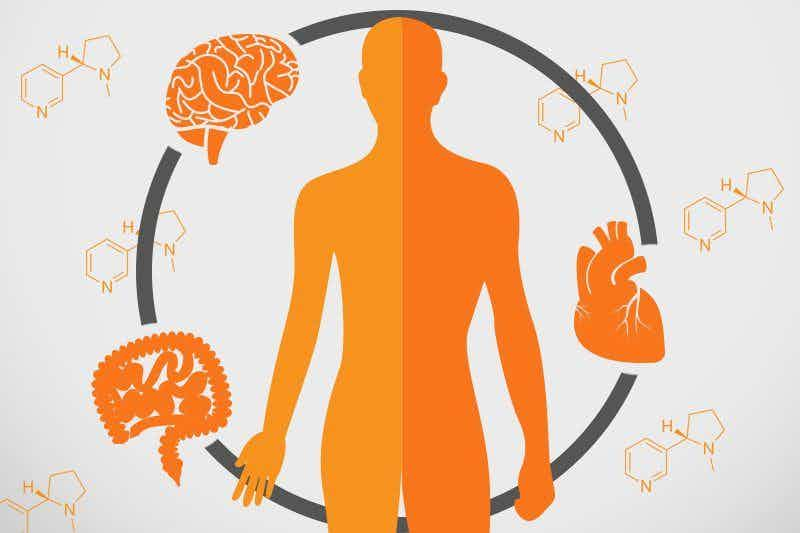Why test for nicotine at all?
People are usually interested in how long nicotine remains in the system because their employer wants to test for nicotine—either as a condition of employment, or more commonly to determine the cost of health insurance.
As unfair as it seems, employers and insurance companies don’t have to distinguish between cigarette smokers and users of nicotine in safer forms, like vaping or smokeless tobacco. Even the use of nicotine gum—which the FDA approves for long-term use—can be treated as a health risk by employers, and lead to higher insurance prices for employees.
Insurance companies consider the presence of nicotine a reliable indicator that the test subject is a tobacco user or a user of nicotine replacement therapy (NRT) products, which usually means an ex-smoker (and someone likely to return to smoking, as more than 90 percent of NRT users do).
But if you try to find the answers to questions like, “How long does nicotine stay in your blood?” or “How long does nicotine stay in your urine?” beware that most testing doesn’t even look for nicotine per se. More on that shortly.
How long does nicotine stay in your body?
While there are tests to measure nicotine in the human body, it’s hard to detect in the blood after one to three days, or in the urine after four days. That’s why most employers and insurance companies no longer concern themselves with how long nicotine stays in your body.
Instead, they test for a substance called cotinine, which is a metabolite of nicotine. Nicotine is turned into cotinine (metabolized) by the liver, and remains detectable in the body for up to three weeks (though usually about one week).
The length of time cotinine remains in your system can vary depending on your ethnic background, gender, medications consumed, and even your diet. For example, men usually maintain higher cotinine levels than women. As the science has advanced, advice on the “cut-points” (the levels above which the person being tested is considered positive for nicotine use) has changed.
Different nicotine tests

Blood testing
There are several tests that can be used to measure cotinine levels. Blood testing is very accurate and can detect both nicotine and cotinine. It’s also the most expensive and invasive testing method, so it’s less frequently used than the other methods.
Obviously, drawing blood requires a trained technician and a visit to a lab, which makes the process expensive and cumbersome for both employee and employer. There are two kinds of blood tests for cotinine. One is a simple positive-or-negative measure that doesn’t quantify the amount of cotinine present in the blood. The other test can specify the level of the nicotine metabolite in the blood serum.
Saliva testing
Saliva testing is the most sensitive of the common testing methods, and many labs and insurance companies have switched to saliva testing in recent years. The levels of cotinine that saliva tests are able to detect are about one-third as high as those in blood serum, and about one-fifteenth those in urine. But the biggest benefit of saliva testing is its ease for all concerned.
Saliva testing for cotinine is often done by employers using kits supplied by third-party labs. Usually a swab of the person�’s mouth is done, and the swab is inserted into a self-sealing container that is then shipped to the lab. The results are then returned to the employer or insurance company online or by phone. This is far less expensive and time-consuming than sending each employee to a lab for blood testing.
Urine testing
Hair testing
How can I avoid testing positive?

There are a variety of products that claim to “cleanse the body” of nicotine (and other drugs) in just a few days. Whether they're truly effective is questionable. Many people being tested—except heavy smokers—have a good chance of testing negative after a week or so without nicotine, and the vast majority will test negative after two weeks.
So save your money, buy some nicotine-free e-liquid, and drink a lot of water to flush your system.
Do all insurance companies test for nicotine?
Insurance companies commonly conduct nicotine (or cotinine) tests on health insurance customers, but some also test for life insurance purposes. Some companies are changing their guidelines now and allowing policy holders to vape or use smokeless tobacco and still be eligible for non-smoker rates. Some even allow cigar smoking without raising their rates.
If you’re in the market for life insurance, it may pay to shop around and ask questions about their policy toward reduced-risk nicotine use.
In the future, we hope employers and insurance companies will recognize the difference in risk between smoking and safer forms of nicotine use, and stop punishing vapers and snus users. Meanwhile, your best bet if you know when you’re going to be tested is to simply abstain for two weeks or longer. If you’re in a secure job, consider discussing with your employer why they should be encouraging smokers at your company to switch to low-risk nicotine products like vaping.

Jim McDonald
Vaping for: 13 years
Favorite products:
Favorite flavors: RY4-style tobaccos, fruits
Expertise in: Political and legal challenges, tobacco control haters, moral panics
Jim McDonald
Smokers created vaping for themselves without help from the tobacco industry or anti-tobacco crusaders, and I believe vapers and the vaping industry have the right to continue innovating to give everyone who wants to use nicotine access to safe and attractive non-combustible options. My goal is to provide clear, honest information about vaping and the challenges nicotine consumers face from lawmakers, regulators, and brokers of disinformation. You can find me on Twitter @whycherrywhy


